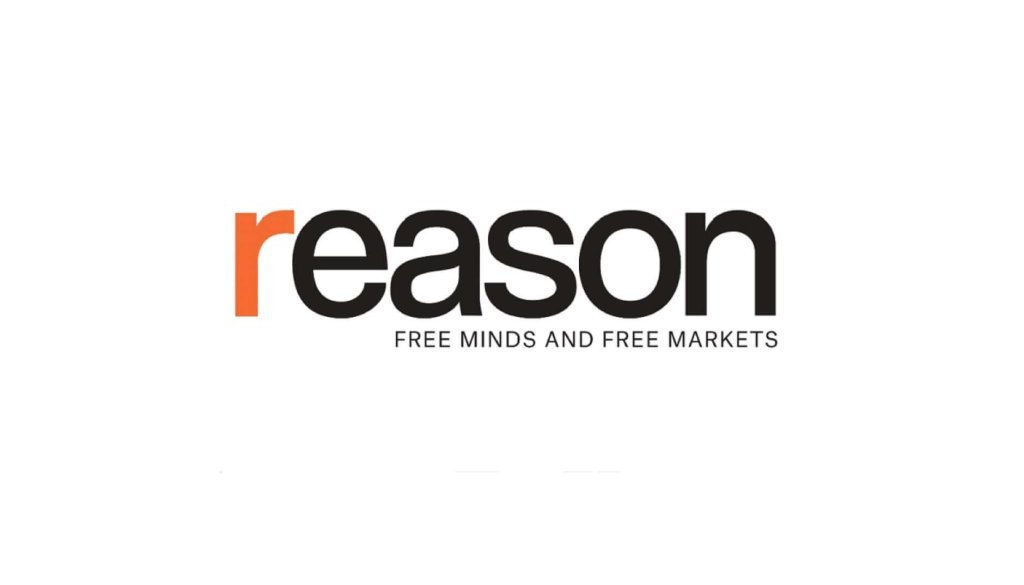Legalize All Drugs! Reason Versus City Journal
Reason was joined by City Journal for a lively, thought-provoking discussion. The resolution: “Legalize all drugs.”
Reason’s Billy Binion and Jacob Sullum argued for the affirmative, while City Journal’s Charles Fain Lehman and Rafael Mangual argued for the negative. The debate was moderated by Reason‘s Peter Suderman.
The discussion was recorded in front of a live audience at the Howard Theatre in Washington, D.C. A full video of the event can be found here.
0:00—Introduction
01:00—Andrew Heaton comedy sketch
9:35—Debate introduction from Peter Suderman
15:20—Jacob Sullum’s opening statement
19:45—Charles Fain Lehman’s opening statement
24:20—Billy Binion’s opening statement
28:16—Rafael Mangual’s opening statement
33:28—Moderator questions about the harmfulness of drugs and the harmfulness of prohibition
42:15—Is alcohol bad?
44:00—Should police be focusing on drug enforcement?
48:28—The failings of the war on drugs
53:30—Game: Legalize, Regulate, Ban
1:02:31—Audience Q&A
1:23:54—Jacob Sullum’s closing statement
1:26:00—Rafael Mangual’s closing statement
1:28:12—Billy Binion’s closing statement
1:30:15—Charles Fain Lehman’s closing statement
1:34:11—Who won the debate?
Transcript
This is an AI-generated, AI-edited transcript. Check all quotes against the audio for accuracy.
Peter Suderman: Hello and welcome to Reason Versus. It is so nice to see all of you here tonight. This is the debate series that pits Reason magazine against other publications in a battle of big ideas.
For this installment, Reason is taking on City Journal, a publication of the Manhattan Institute. I’m Peter Suderman, I’ll be your moderator. Full disclosure: I do work at Reason, but my job tonight will be to try to be fair and at least mostly sober-minded. Which I think will probably be appropriate for this debate, because this evening our two sides will be arguing over the proposition: legalize all drugs.
Now, because this is a debate, there will be a winner, and that winner will be decided by you, the audience. The way this is going to work is that there will be two votes. You’re going to vote right now—that is, if you haven’t already—and then you’re going to vote again after the debate. The team that has shifted the most support to their side will win.
So if you have not cast your vote, please follow the instructions that are on the screen right now. And as you vote, I want you to think just a little bit about the resolution before us tonight. What exactly would it mean to legalize all drugs?
It’s a simple statement—just three words: legalize all drugs. But think a little more about those three words, and the complications and the questions begin to arise.
What exactly is a drug? Most people here would probably say that marijuana counts, and so does fentanyl. But what about performance-enhancing substances like steroids? What about birth control or Plan B? What about Sudafed or caffeine? Or what about something like Whippets?
If you don’t know what Whippets are, they’re the nitrous oxide fumes at the tail end of a whipped cream canister that the bartenders at the place where I worked many, many years ago used to like to experiment with. They make your voice high and they make you feel funny, and they are still technically illegal for recreational purposes.
So the word “drugs” covers far more substances than you might initially think. And that leads us to another question: What, practically, would it mean to legalize all drugs? Would it just mean the end of police action—what we think of as the drug war? Would it mean abolishing the FDA?
And finally, what does legalization mean—socially, economically, and practically? After all, Sudafed is legal, but it’s kept behind counters. Marijuana is quite legal in some places, definitely illegal in other places, and in some sort of murky middle ground in other places—all while still being restricted federally. And even fentanyl, the villain of so many of today’s political narratives, is approved for medical use. I may not be the only person in this room who has had fentanyl injected into them legally, by a doctor, in a medical setting.
So legalization might mean many things. For example, it might just mean no jail time for drug offenses. Or it might mean that big beer conglomerates become big pot conglomerates.
What I’m saying is the very terms here are up for debate and so are the social, and legal, and political consequences. Now, I have not conferred with either side about their arguments in advance. But any debate about drug legalization inevitably pits concerns about abuse and addiction and broader social harms against personal freedom, bodily autonomy, and the individual and collective costs of incarceration.
This is a policy debate with ramifications for police procedure and bureaucratic rulemaking. But for so many people—on both sides of this argument, publicly, it is also a deeply, deeply personal issue that has touched their own lives and the lives of their family members.
To discuss all of these issues and the questions that arise from them, we have four top-notch debaters here tonight. From City Journal, arguing against the resolution, we have Charles Fain Lehman and Rafael Mangual. And from Reason, arguing for the resolution, we have Billy Binion and Jacob Sullum.
All four of our debaters have written and debated extensively about drug policy and criminal justice in the past. Folks, this is going to be a great debate.
It is now time to close our initial vote and have that debate. So if you haven’t voted, your time is up. It’s over. We will start with opening statements, alternating between Reason and City Journal. Reason, let’s start with you. I believe Jacob Sullum, you’re starting out.
You have four minutes.
Jacob Sullum: Humans like to get high. Their inclination to seek altered states of consciousness—frequently with the aid of chemical agents—is apparent throughout recorded history and across many cultures.
That urge, like the sex drive and the desire for food, can cause problems. The question is how the government should respond to those problems. In particular, whether the use of force is justified to prevent people from consuming politically disfavored intoxicants.
That sort of intervention contradicts the classical liberal principle that people are sovereign over their own bodies and minds. That’s a tradition that frowns upon paternalistic policies that aim to protect people from the consequences of their own bad choices.
Even if you don’t fully embrace that view, you should be troubled by the practical consequences of drug prohibition, which include violence, rampant official corruption, squandered taxpayer money, diverted law enforcement resources, theft driven by artificially high drug prices, the potentially deadly hazards of consuming iffy black-market drugs, long prison terms for conduct that is not inherently criminal, and the erosion of civil liberties.
Now, you can avoid some of those costs by avoiding illegal drugs—but not all of them. If you value the right to be secure against unreasonable searches and seizures, for instance, you should be alarmed by the long line of Supreme Court cases that have whittled away at the Fourth Amendment to facilitate the War on Drugs. Which is also the main factor driving the system of legalized larceny known as civil asset forfeiture.
The powers blessed by the Supreme Court build on the basic authority granted by prohibition, which legalizes police conduct that otherwise would be readily recognized as criminal. The casualties include people erroneously implicated in drug trafficking, such as Breonna Taylor; innocent bystanders, such as the toddler who was maimed by a flash-bang grenade during a drug raid in Georgia; and people guilty of nothing more than engaging in consensual exchanges, who are periodically killed by police during drug raids.
Prohibition also fosters violence by creating a black market where there is no peaceful way to resolve disputes. Although the resulting bloodshed is often described as “drug-related,” that is true only in the sense that the St. Valentine’s Day Massacre was alcohol-related.
Also like alcohol prohibition, the War on Drugs has resulted in widespread official corruption. Such corruption is especially striking in source countries, but it’s also apparent across the United States, ranging from federal drug and border agents to prison guards and local police officers.
The inflated profits that motivate and subsidize bribery also explain why politicians have never delivered on their promise to stop the flow of illegal drugs, despite more than a century of determined effort. That risk premium gives drug traffickers a powerful incentive to find ways around any barriers the government manages to erect.
Instead of reducing drug-related harm, these efforts have magnified it in several ways. By artificially raising prices, prohibition encourages drug injection, which is the most cost-effective method of consumption but also poses special dangers. Prohibition drives traffickers toward more potent substances because they’re easier to smuggle. That phenomenon is reflected in the proliferation of illicit fentanyl and the earlier shift from opium to heroin.
Ramped-up enforcement of prohibition can always make the situation worse. Consider what happened after the crackdown on pain medication, which drove nonmedical users toward black-market substitutes that were much more dangerous. Even as opioid prescriptions fell dramatically, the upward trend in opioid-related deaths not only continued but accelerated.
Prohibition makes life worse—sometimes a lot worse—for people who defy it. Those costs supposedly are justified by benefits to other people, the ones who would have suffered drug-related harm because of bad choices deterred by prohibition. That tradeoff is morally dubious, even if you accept paternalism as a justification for government intervention.
Suderman: All right, City Journal, choose your fighter. Charles Fain Lehman.
Charles Fain Lehman: Yeah, thank you to the kind folks at Reason for having us. Thanks to the Howard Theatre—I’m pleased to see that there are addictive, harmful substances available in the back. You should avail yourselves of them. I’ll be more persuasive.
Myself and my colleague, Rafael, have two jobs tonight. One is to persuade you that drugs are bad, and the other one is to persuade you that prohibition works. The first one is easier, so I’m leaving it to him—although I think that our opponents are probably willing to concede the basic idea that drugs are harmful.
So it falls to me to argue that drug prohibition works and that the arguments against it don’t make a lot of sense.
To set that stage, I want to imagine the world without prohibition—just for a second. It’s a world in which I can walk to my local Walmart and buy fentanyl. Amazon will deliver meth to my door by drone. This sounds very appealing to some of you in the audience, but to others, not so much.
Major firms get to innovate in drug design because recall that all modern, destructive, deadly drugs were first invented by pharmaceutical corporations. They also get to advertise, hand out free samples. In general, the efficiency of modern, capitalistic free enterprise gets applied to the problem of getting people addicted to drugs.
Why don’t we live in that world? Well, the answer is prohibition. Prohibition is an application of the basic libertarian insight that government intervention makes markets less efficient—they work less well. Minimum wage laws make labor markets not clear. Environmental regulations make producers less efficient. And prohibition makes drug markets run worse.
It makes it harder to run a business because drug users lose access to sellers, lose access to robust capital markets, to third-party businesses, to otherwise talented employees, and to innovation generally. For example, as I think Peter alluded to, many people in this room have probably taken fentanyl in a medical setting—certainly if you’ve had an epidural, you have. And yet it took 50 years between the time when fentanyl was first synthesized and its spread into the illicit market. Why? Prohibition.
The pharmaceutical equivalents of drugs like meth and cocaine—which can be obtained in hospitals or by prescription—are far purer than the product on the street. Why? Prohibition.
Heroin is extraordinarily expensive, even though it’s easy to make and the initial components are quite cheap. Why? Prohibition.
The other side is going to argue that prohibition does not work. This is sort of a totemic belief of the libertarians. It’s not true, but they do believe it.
We can look at real-world legalizations to know that this is not the case. All sorts of goods are successfully prohibited—whether it be raw milk, or fireworks, or endangered species.
More importantly, when you look at recent legalizations of raw milk or marijuana or sports gambling, we get the common-sense result. Which is that when you permit something, it becomes more widely consumed, and as a result, its harms are much more likely to obtain.
The other argument that we’ll hear tonight is that the side effects of prohibition are not worth it. They’ll insist that all prohibition looks like some of the worst excesses of the War on Drugs, or they’ll cherry-pick terrifying stories about children being assaulted by DEA officers. But the broad spectrum of real-world prohibition should challenge this vision.
Nobody is arrested for the sale of raw milk. In the benighted days of 2017, when you could not sports gamble nationwide, there were just 2,000 gambling arrests—most of them not associated with sports betting. Even during high-enforcement periods like the crack era War on Drugs, only between 2 and 6 percent of drug incarcerees were unambiguously low-level, first-time offenders.
The reality is that even the most aggressive prohibition does not look like the boogeyman it’s made out to be. Moreover, enforcement can be refined by policymakers. Legalization and the uncontrolled free market cannot.
So prohibition gets a bad rap. It’s maligned as clunky, dumb, pointless. In reality, it’s a simple, elegant tool for using one of government’s worst qualities—the way that it makes markets work badly—to our collective advantage.
So I encourage you to take the negative, and I look forward to a robust conversation.
Suderman: Billy Binion from Reason. You have four minutes.
Billy Binion: I’d like to start by talking about what ending the drug war is not. It is not an endorsement of drug use. It is not letting public spaces decay and turn into shantytowns. And it is not a refusal to enforce other criminal laws.
In a New York Times piece 2 years ago, columnist Bret Stephens summed up his opposition to drug liberalization in a way that I think has come to epitomize why a lot of people oppose drug liberalization. The column is about a thousand words, but I can sum it up in one: Portland.
Over the course of the column, Stephens relied on anecdotes about troubling behavior in Portland—including public drug use, feces on the street, and a couple engaging in oral sex on a block between Target and Nordstrom—all of which he attributed to the city’s lax drug laws.
But what if I told you that those things effectively have nothing to do with each other?
In recent years, we’ve seen a strange conflation between legalizing drugs and legalizing crime, generally. As if one requires the other. In the early 2020s, Multnomah County, where Portland is located, decriminalized the possession of small amounts of drugs. It also deprioritized prosecuting theft for anything under $1,000.
Now, when I say “legalize drugs,” I do not mean legalize theft—beca
Article from Reason.com

The Reason Magazine website is a go-to destination for libertarians seeking cogent analysis, investigative reporting, and thought-provoking commentary. Championing the principles of individual freedom, limited government, and free markets, the site offers a diverse range of articles, videos, and podcasts that challenge conventional wisdom and advocate for libertarian solutions. Whether you’re interested in politics, culture, or technology, Reason provides a unique lens that prioritizes liberty and rational discourse. It’s an essential resource for those who value critical thinking and nuanced debate in the pursuit of a freer society.




